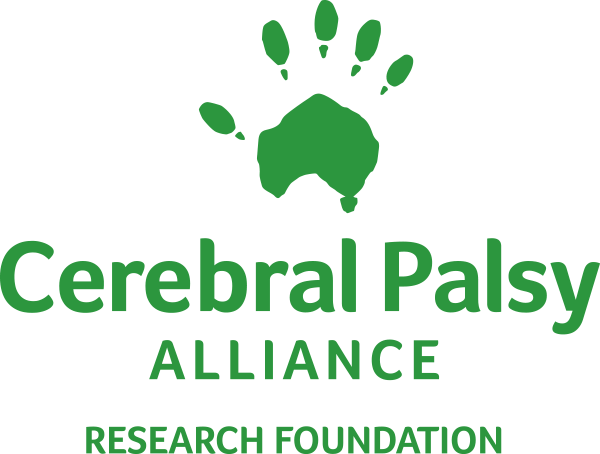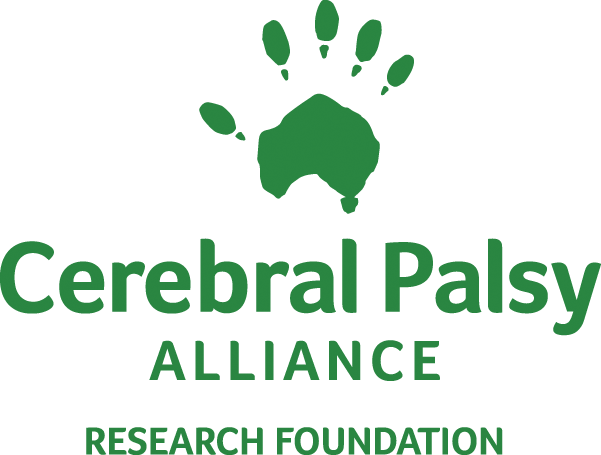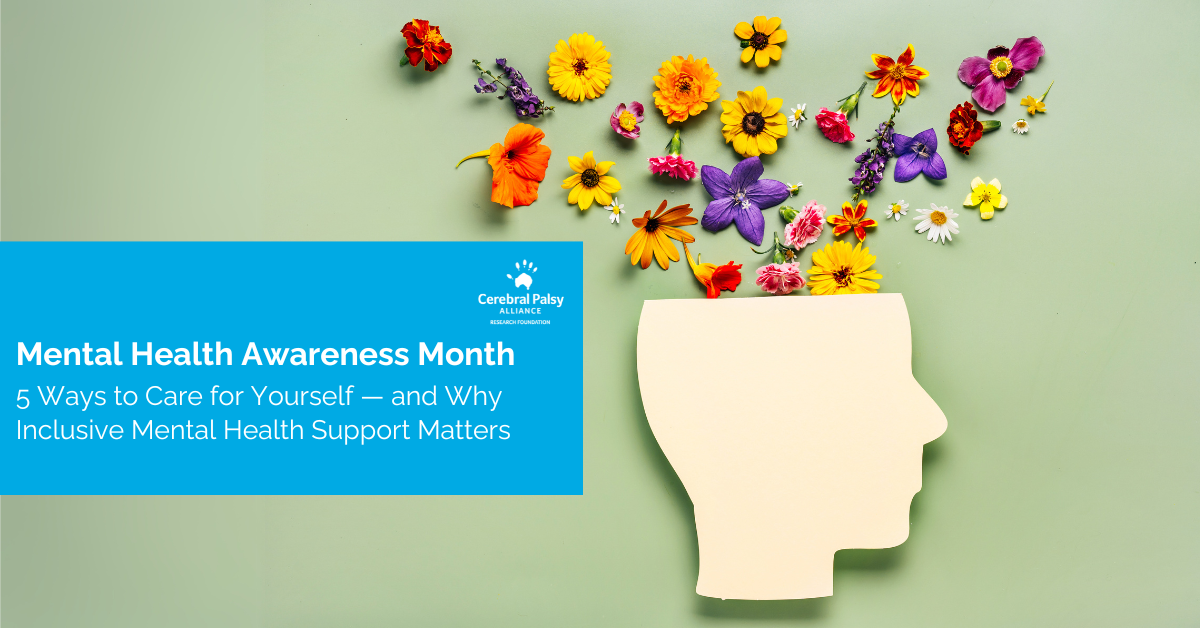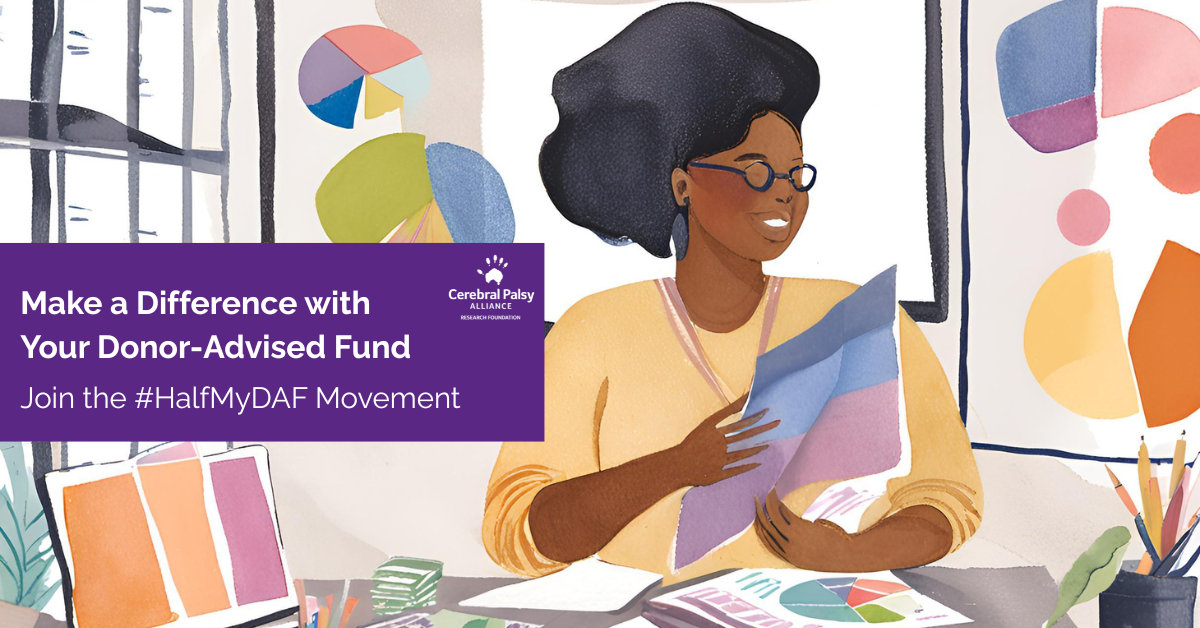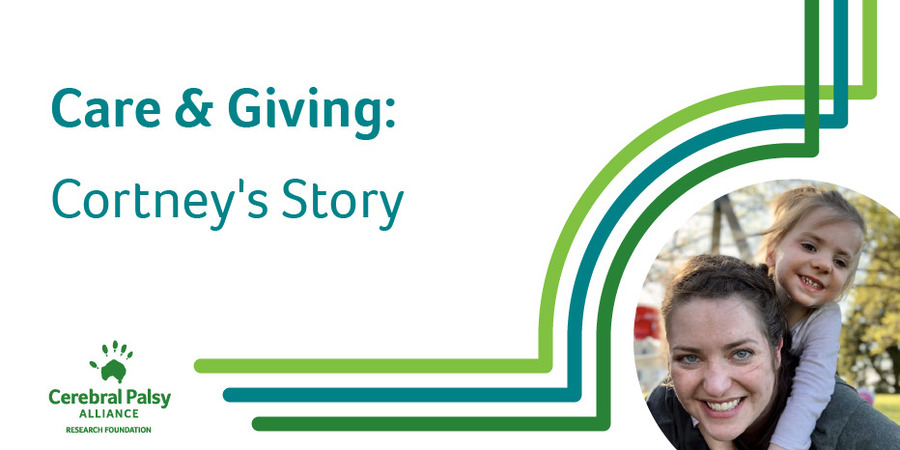
CARE & GIVING: Cortney’s Story*
Cortney dives into the positive parts of parenting a child with cerebral palsy.
What unexpected positives have you experienced since Scarlett’s diagnosis?
There have been several unexpected positives from Scarlett’s diagnosis. Our family is far more aware of how disability affects individuals and families. Before Scarlett’s diagnosis, I was so unaware because I did not have a lot of experience with children or adults with disabilities. We now live it with Scarlett and can be far better allies and advocates for her and others with cerebral palsy.
Another positive that I think about often is how much Scarlett’s diagnosis has helped us slow down. Could we do “all the things,” like sports and other activities? Sure, but when you have a child with a disability, you learn to listen to them and be more selective with how you spend your time. Although we believe in helping Scarlett do whatever she wants to do, we let her set the pace. Babies don’t keep, and we have a limited and finite time with our children. I’m thankful that, because of Scarlett, we spend a lot of time just being together, savoring childhood.
Also, I believe many of the things I love most about Scarlett and her personality are traits that have been nurtured through her experience with cerebral palsy. She has been through so much more in her five years than I have been through in my 36, such as therapies, surgeries, and doctors’ appointments. Scarlett is funny, tough, confident, and wise beyond her years. She is always thinking and observing. She catches things that others miss because she is thoughtful and cares about details. For example, she only needs to meet someone one time to remember their name. She knows everyone at school, including teachers, staff, students, and parents. At school or church, I’ll forget someone’s name, but she always has it for me. She is a planner and the best at reminding me of things because she knows I am scatter-brained most of the time. She knows what she is going to be for Halloween six months in advance, and she has her (very concise) Christmas list prepared by the end of October.
Scarlett and others in the disability community are teaching me that disability is not a tragedy. The real tragedies are systemic ableism and lack of access, which can make life for disabled people and their families more difficult. This is something our society needs to continually improve, and it’s going to take people listening when people in the disability community speak.
I see the unique and thoughtful perspective that disability provides my daughter. I wish that everyone would recognize how much people with disabilities could impact the world in positive ways if we would just get to know them, give them greater access, remove barriers to the table, and provide more platforms for them to share their stories.
Moved by this story? Donate to CPARF to keep cerebral palsy research and disability innovation moving forward.
*Cortney's story is part of CARE & GIVING. This series covers a few different aspects of the cerebral palsy community. It features the experiences of those who care about and for people with cerebral palsy, including parents and caregivers, therapists, paraprofessionals, and other allies. It also highlights donors who have made it their mission to move cerebral palsy forward, because care and giving go hand in hand.
The CARE & GIVING blog is intended solely to raise awareness about the varied human experience with cerebral palsy and shouldn't be read or construed to contain any medical advice or medical endorsement by Cerebral Palsy Alliance Research Foundation. Only you and your doctor know what's best for you. Please consult your doctor for medical advice.
Thu 01 May 2025
Mental Health Awareness Month: 5 Ways to Care for Yourself — and Why Inclusive Mental Health Support Matters As we enter May, Mental Health Awareness Month reminds us of the importance of openly discussing mental health, something that affects us all but often goes unspoken. At CPARF, we know that mental health care is for […]
Thu 24 Apr 2025
Make a Difference with Your Donor-Advised Fund: Join the #HalfMyDAF Movement At CPARF, we're always looking for new and meaningful ways for our supporters to create lasting impact for people with cerebral palsy and other disabilities. A surprisingly powerful, yet often overlooked, way to do that is through a Donor-Advised Fund (DAF). And right now, [...]